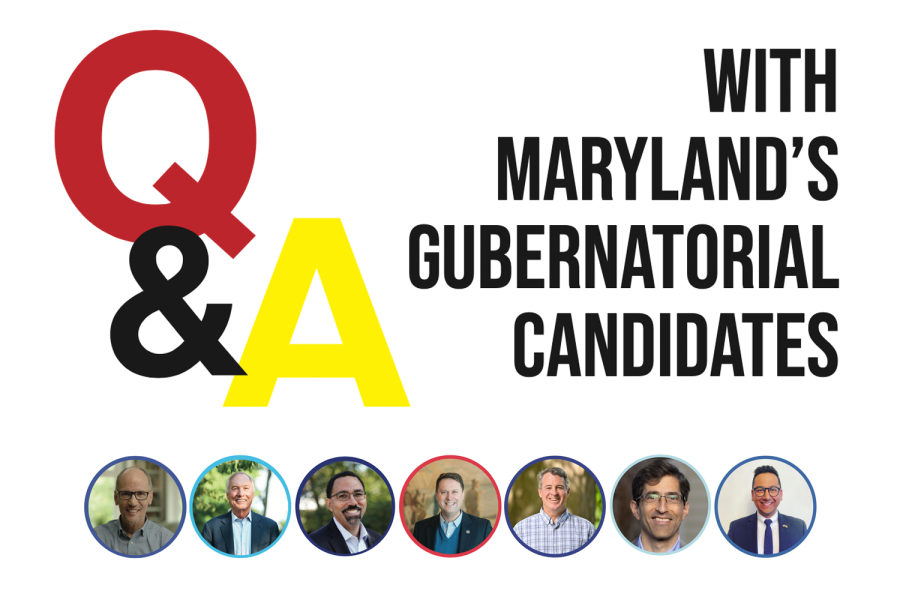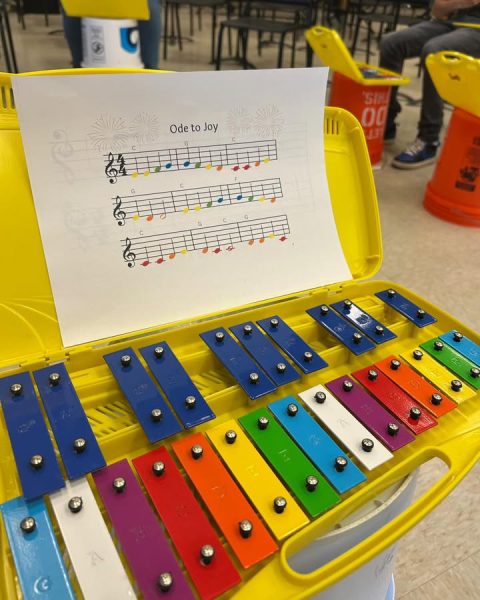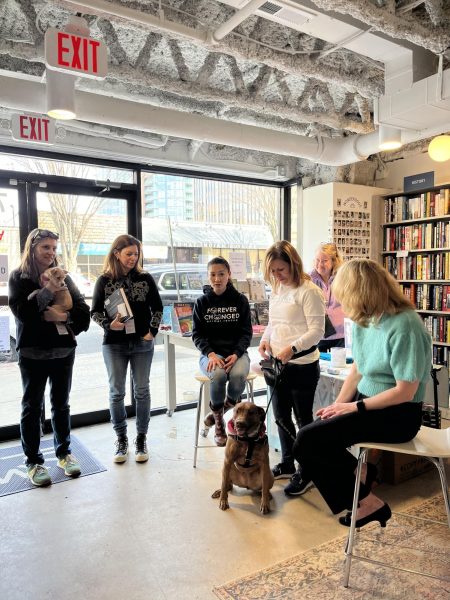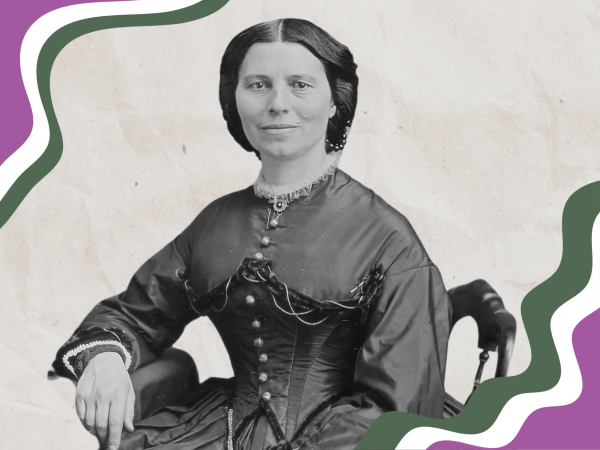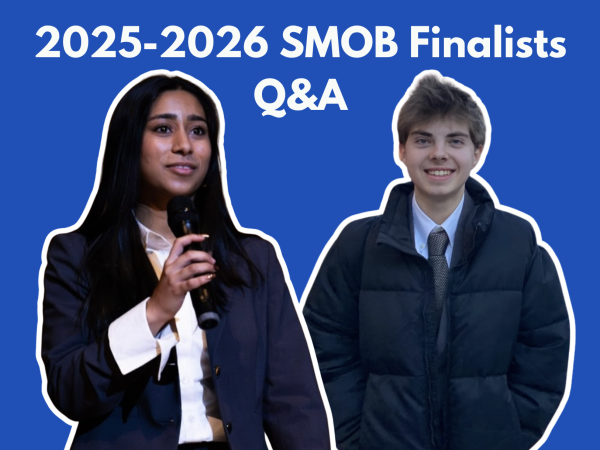Q&A with Maryland’s gubernatorial candidates
Leah Goldstein, Maya Weise and Ethan Schenker
The Black & White interviewed seven of Maryland’s gubernatorial candidates in January and February of 2022, using the same set of questions to offer a side-by-side comparison of their policies, goals and experience.
A different version of this article was published in print during the 2021-2022 school year.
Maryland’s 2022 gubernatorial primary elections will take place on July 19. The Black & White interviewed Maryland’s gubernatorial candidates in January and February of 2022, using the same set of questions to offer a side-by-side comparison of their policies, goals and experience.
Responses have been edited for length and clarity.

Tom Perez (D): Tom Perez is a politician and lawyer who most recently served as Chair of the Democratic National Committee from 2017 to 2021. Previously, he worked in the Obama administration as Assistant Attorney General for Civil Rights from 2009 to 2013, and as United States Secretary of Labor from 2013 until 2017. Born and raised in Buffalo, New York, Perez holds a B.A from Brown University, a degree from Harvard Law School and a Master of Public Policy from the John F. Kennedy School of Government. Perez lives with his family in Takoma Park, Maryland, and served one term on the Montgomery County Council before his appointment as Secretary of the Maryland Department of Labor, Licensing and Regulation in 2007.
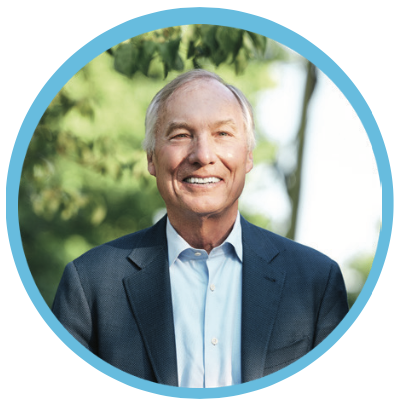
Peter Franchot (D): Peter Franchot is a politician and the current Comptroller of Maryland since 2006. Franchot represented Silver Spring and Takoma Park in the Maryland House of Delegates for 20 years. Born in New Haven, Connecticut, Franchot attended Amherst College and went on to earn a law degree from the Northeastern University School of Law. He was elected to a third term as Comptroller in 2018 with 72.1% of the vote.
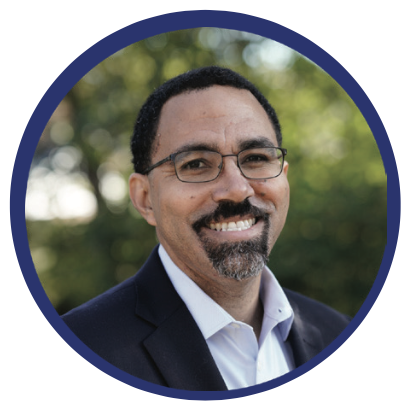 John King Jr. (D): John King Jr. is a public servant and educator who served as the United States Secretary of Education under President Barack Obama from 2016 to 2017, and as acting Deputy Secretary of Education from 2015 until the president tapped him to lead the agency. Born and raised in Brooklyn, New York, King earned his undergraduate degree from Harvard College, and his law degree from the Yale Law School and later received both a Masters and a Doctor of Education from Columbia University. King taught high school social studies and worked as a middle school principal before serving as the New York Commissioner of Education from 2011 to 2015. He lives in Silver Spring, Maryland, with his wife and two daughters, and is President of organization that seeks to close opportunity and achievement gaps in education.
John King Jr. (D): John King Jr. is a public servant and educator who served as the United States Secretary of Education under President Barack Obama from 2016 to 2017, and as acting Deputy Secretary of Education from 2015 until the president tapped him to lead the agency. Born and raised in Brooklyn, New York, King earned his undergraduate degree from Harvard College, and his law degree from the Yale Law School and later received both a Masters and a Doctor of Education from Columbia University. King taught high school social studies and worked as a middle school principal before serving as the New York Commissioner of Education from 2011 to 2015. He lives in Silver Spring, Maryland, with his wife and two daughters, and is President of organization that seeks to close opportunity and achievement gaps in education.
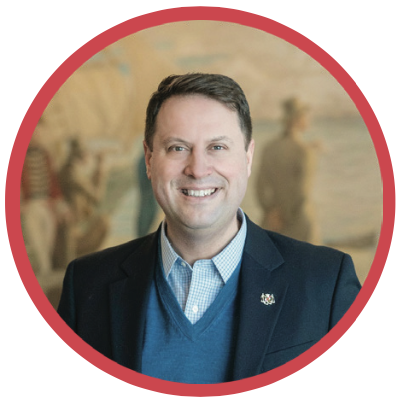 Dan Cox (R): Dan Cox is a politician and lawyer. He has represented Maryland’s fourth district in the Maryland House of Delegates since 2019, and previously served as Secretary of the Frederick County Central Republican Committee. Born in Washington, D.C., Cox attended the University of Maryland and received a law degree from Regent University. Prior to his election to the House of Delegates, Cox worked in educational policy. He lives in Frederick County, Maryland, with his wife and 10 children, and operates his own law firm.
Dan Cox (R): Dan Cox is a politician and lawyer. He has represented Maryland’s fourth district in the Maryland House of Delegates since 2019, and previously served as Secretary of the Frederick County Central Republican Committee. Born in Washington, D.C., Cox attended the University of Maryland and received a law degree from Regent University. Prior to his election to the House of Delegates, Cox worked in educational policy. He lives in Frederick County, Maryland, with his wife and 10 children, and operates his own law firm.
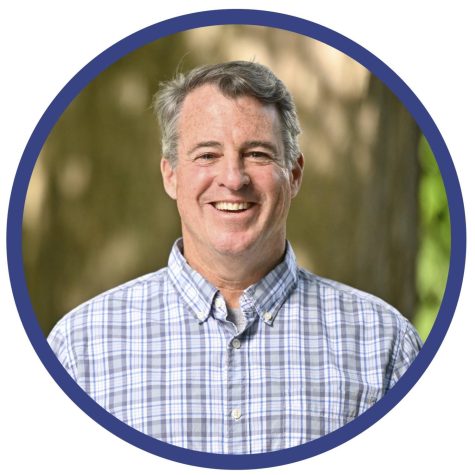
Doug Gansler (D): Doug Gansler is a politician and lawyer who served as the Attorney General off Maryland from 2007 to 2015. Previously, he served as the Montgomery County State’s Attorney from 1999 until 2007, and worked as an Assistant U.S. Attorney for six years. Born in Summit, New Jersey, Gansler was raised in Chevy Chase, Maryland, and attended Yale University and holds a law degree from the University of Virginia School of Law. Gansler lives in Bethesda, Maryland, with his wife and two sons, and works as a partner at a law firm.
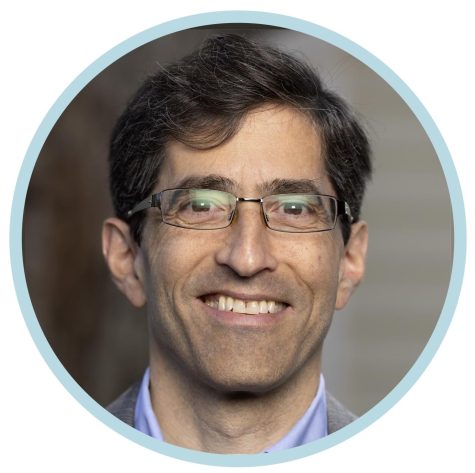
Jon Baron (D): Jon Baron is a nonprofit executive and lawyer who served in the Clinton administration. He managed the Department of Defense’s Small Business Research Innovation Program from 1995 to 2000, and served as the Executive Director of the Presidential Commission on Offsets in International Trade until 2001. Baron founded the Coalition for Evidence-Based Policy in 2001 and led the nonprofit until he began working as the Vice President for Evidence-Based Policy at the philanthropic organization Arnold Ventures in 2015. Born in Washington, D.C., Baron attended Rice University and went on to earn a Master in Public Affairs from Princeton University and a law degree from Yale Law School. He lives in Bethesda, Maryland, with his wife and two sons.
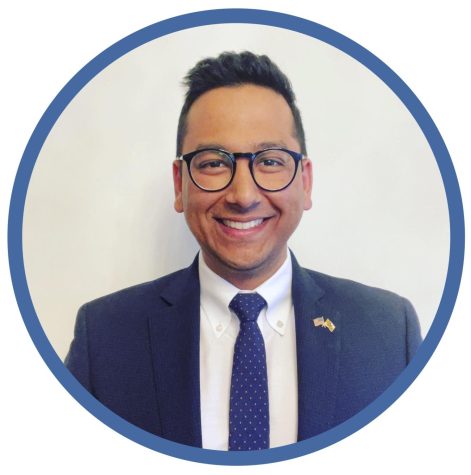
Ashwani Jain (D): Ashwani Jain is a nonprofit program manager and former Obama administration official. Between 2014 and 2017, he worked in the Office of Presidential Personnel, Department of Housing and Urban Development, Office of the Vice President and the Department of Health and Human Services. Born in Rockville, Maryland, Jain attended the University of Maryland and received a Master of Political Management from The George Washington University. He currently works as a program director at the National Kidney Foundation.
The Black & White: Why did you decide to run for governor?
 Tom Perez: I decided to run for governor because I think we have an incredible opportunity to improve people’s lives and to make sure Maryland punches above its weight on jobs, justice, healthcare, climate change and opportunity for everyone. We’re the richest state in the country, and yet we have so many people living below the poverty line. We are all too frequently a tale of two states, and I want to make sure that zip code never determines destiny in this state. I’ll make sure of that, because my whole career has been about jobs, justice and opportunity.
Tom Perez: I decided to run for governor because I think we have an incredible opportunity to improve people’s lives and to make sure Maryland punches above its weight on jobs, justice, healthcare, climate change and opportunity for everyone. We’re the richest state in the country, and yet we have so many people living below the poverty line. We are all too frequently a tale of two states, and I want to make sure that zip code never determines destiny in this state. I’ll make sure of that, because my whole career has been about jobs, justice and opportunity.
 Peter Franchot: I’m running for governor because I want to help the vulnerable. There are hundreds of thousands of families in Maryland right now — generally low-wage earners in the hospitality sector who have no money for food, medicine, or rent. They have been disproportionately affected by the damage that has been done by COVID because they live in a congested living situation, and it annihilated repair that damage, and to address the economy generally, which has been affected tremendously.
Peter Franchot: I’m running for governor because I want to help the vulnerable. There are hundreds of thousands of families in Maryland right now — generally low-wage earners in the hospitality sector who have no money for food, medicine, or rent. They have been disproportionately affected by the damage that has been done by COVID because they live in a congested living situation, and it annihilated repair that damage, and to address the economy generally, which has been affected tremendously.
 John King Jr.: I really decided to run for governor for the same reason that I got into a role that public institutions can play in people’s lives. That was shaped by my experience growing up as a kid. When I was little, both of my parents were educators, but they both passed away when I was very young — my mom when I was eight, and my dad when I was incredibly difficult and unstable and scary, and the thing that saved me was school; school was the one place that was safe and consistent and nurturing. As a teenager, like many kids who’ve experienced trauma, I struggled a lot and actually got kicked out of high school. But it was teachers and a school counselor who gave me a second chance, and were willing to see me as more than the sum of my mistakes. Because of them, I became a teacher and a principal and tried to do for other kids what educators have done for me, and running for governor is really an extension of that same principle that government can be a powerful force for good in people’s lives.
John King Jr.: I really decided to run for governor for the same reason that I got into a role that public institutions can play in people’s lives. That was shaped by my experience growing up as a kid. When I was little, both of my parents were educators, but they both passed away when I was very young — my mom when I was eight, and my dad when I was incredibly difficult and unstable and scary, and the thing that saved me was school; school was the one place that was safe and consistent and nurturing. As a teenager, like many kids who’ve experienced trauma, I struggled a lot and actually got kicked out of high school. But it was teachers and a school counselor who gave me a second chance, and were willing to see me as more than the sum of my mistakes. Because of them, I became a teacher and a principal and tried to do for other kids what educators have done for me, and running for governor is really an extension of that same principle that government can be a powerful force for good in people’s lives.
 Dan Cox: The last two years in particular, we’ve seen an unprecedented attack on our constitutional freedoms. The result has been a loss of our basic freedoms that we’ve known for 400 years, such that people were arrested for trying to go to church, and arrested for trying to open their businesses and provide for their families. They were threatened if they were to speak out under the First Amendment and were to leave their houses under the stay-at-home order. Many Republican states have shown a better way of providing governmental support to ensure that we don’t lose many lives. Article 44 under the Declaration of Rights of Maryland guarantees that our Constitution is established at all times, especially for emergencies. Otherwise, government leaders would just simply misuse their powers whenever there’s a despot in charge. That is the number one reason why I felt that this is the time and the moment that we need to run.
Dan Cox: The last two years in particular, we’ve seen an unprecedented attack on our constitutional freedoms. The result has been a loss of our basic freedoms that we’ve known for 400 years, such that people were arrested for trying to go to church, and arrested for trying to open their businesses and provide for their families. They were threatened if they were to speak out under the First Amendment and were to leave their houses under the stay-at-home order. Many Republican states have shown a better way of providing governmental support to ensure that we don’t lose many lives. Article 44 under the Declaration of Rights of Maryland guarantees that our Constitution is established at all times, especially for emergencies. Otherwise, government leaders would just simply misuse their powers whenever there’s a despot in charge. That is the number one reason why I felt that this is the time and the moment that we need to run.

Doug Gansler: I believe in public service, and I grew up involved in public service. I started interning on Capitol Hill when I was in high school. I worked for a Senator Birch Bayh — who actually lived in Maryland, and passed away recently — and then Bill Bradley. I was involved in politics in college, ran Gary Hart’s campaign on campus and then co-chaired the Connecticut campaign when he ran for president in 1984. I’ve always believed in the power of politics to help people that needed the help of government.
I ended up being in government for 23 years, and then ran for governor in 2014 and lost. I was — like all of us — sort of wandering around during COVID and had a lot of time for introspection and reflection. I realized that while I love my job at a law firm, my true currency is helping people. I thought that we’re in this time of crisis and that I had contributed a great deal in public service but I have a lot more to contribute. I was encouraged to run by a lot of different people from the Democratic Party, as someone who could win both the general election and the primary.
 Jon Baron: The reason I’m running for governor is that Maryland is not making progress on major problems that are damaging the lives of millions of people, and I’m offering a fundamentally different approach. In education, for instance, more than a quarter of Maryland middle school students can’t read at a basic level; more than a third can’t do basic math. Those numbers are no different than they were 20 years ago. Our state’s poverty rate — 9% — is exactly what it was in 1995, while low and moderate-income Marylanders — the bottom 40% — have seen stagnant wages since the 1980s while income inequality has soared. Racial inequities persist in all of these areas. Our state just can’t keep doing the same thing we’ve been doing for decades — rolling out one unproven government program after another — and expect a different result. That hasn’t brought progress, and it won’t for a simple reason: many programs — no matter how well intentioned they are — just don’t work, as we’ve seen too often when the results are actually measured. So if we’re going to make progress, we have to expand programs that don’t just sound like they’re good ideas, but have been tested in the real world and shown to make a big difference in people’s lives. That’s been the mission of my career, and of the bipartisan reforms that I’ve gotten enacted into law. When I’m the governor of Maryland, we’re going to do what’s proven to work.
Jon Baron: The reason I’m running for governor is that Maryland is not making progress on major problems that are damaging the lives of millions of people, and I’m offering a fundamentally different approach. In education, for instance, more than a quarter of Maryland middle school students can’t read at a basic level; more than a third can’t do basic math. Those numbers are no different than they were 20 years ago. Our state’s poverty rate — 9% — is exactly what it was in 1995, while low and moderate-income Marylanders — the bottom 40% — have seen stagnant wages since the 1980s while income inequality has soared. Racial inequities persist in all of these areas. Our state just can’t keep doing the same thing we’ve been doing for decades — rolling out one unproven government program after another — and expect a different result. That hasn’t brought progress, and it won’t for a simple reason: many programs — no matter how well intentioned they are — just don’t work, as we’ve seen too often when the results are actually measured. So if we’re going to make progress, we have to expand programs that don’t just sound like they’re good ideas, but have been tested in the real world and shown to make a big difference in people’s lives. That’s been the mission of my career, and of the bipartisan reforms that I’ve gotten enacted into law. When I’m the governor of Maryland, we’re going to do what’s proven to work.
 Ashwani Jain: It was kind of just a culmination of everything. It’s seeing and being involved in politics for so many years, and seeing that not enough action happens quickly enough. Elected officials or politicians will give the talking points, but they’ll never tell you exactly what they’re going to do, or how they’re going to pay for their solutions. I had solutions to a lot of these problems that we keep having time and time again, and I have the ways to pay for all those ideas. I’m running for governor to make our politics more inclusive and more accessible. I have the experience and perspective needed, especially given the fact that I would be the nation’s youngest governor, if elected.
Ashwani Jain: It was kind of just a culmination of everything. It’s seeing and being involved in politics for so many years, and seeing that not enough action happens quickly enough. Elected officials or politicians will give the talking points, but they’ll never tell you exactly what they’re going to do, or how they’re going to pay for their solutions. I had solutions to a lot of these problems that we keep having time and time again, and I have the ways to pay for all those ideas. I’m running for governor to make our politics more inclusive and more accessible. I have the experience and perspective needed, especially given the fact that I would be the nation’s youngest governor, if elected.
The B&W: How has your experience prepared you for this role?
 Tom Perez: The next governor is going to be the multitasker-in-chief. It would be wonderful to only have to work on one thing, but we have multiple challenges in this state. We need a leader who will bring down the exorbitant cost of prescription drugs and healthcare, and who has a proven track record of working in this area; I’ve done that. We need a leader who understands how we can insure Marylanders, and I’ve already put out a proposal to make sure that every Maryland resident, regardless of immigration status, has access to quality, affordable health insurance. I think it’s an economic imperative, and a moral imperative.
Tom Perez: The next governor is going to be the multitasker-in-chief. It would be wonderful to only have to work on one thing, but we have multiple challenges in this state. We need a leader who will bring down the exorbitant cost of prescription drugs and healthcare, and who has a proven track record of working in this area; I’ve done that. We need a leader who understands how we can insure Marylanders, and I’ve already put out a proposal to make sure that every Maryland resident, regardless of immigration status, has access to quality, affordable health insurance. I think it’s an economic imperative, and a moral imperative.
The next governor needs to have a proven track record in creating jobs. I worked as part of President Obama’s economic team, and we had the longest uninterrupted streak of private sector job growth in our nation’s history. If we have another recession, we need a governor who’s going to make sure you get your unemployment insurance benefits in a timely fashion. Larry Hogan dropped the ball, so people were waiting eight months, but I was the Labor Secretary in Maryland during the Great Recession, and people weren’t waiting eight months — we were making sure that people got their unemployment benefits in a timely fashion.
 Peter Franchot: There’s never been a candidate like me for governor, because I have extraordinary fiscal experience: 20 years on the House Appropriations Committee — ending up as an important subcommittee chair — dealing with the budget of the state of Maryland every session, and then the last 15 years as the statewide elected Comptroller. I am also the tax administrator for the state, and am the Chairman of the Board of Trustees of the State Retirement Pension Fund. I have a unique length of experience in dealing with the economic problems and opportunities facing the state.
Peter Franchot: There’s never been a candidate like me for governor, because I have extraordinary fiscal experience: 20 years on the House Appropriations Committee — ending up as an important subcommittee chair — dealing with the budget of the state of Maryland every session, and then the last 15 years as the statewide elected Comptroller. I am also the tax administrator for the state, and am the Chairman of the Board of Trustees of the State Retirement Pension Fund. I have a unique length of experience in dealing with the economic problems and opportunities facing the state.
 John King Jr.: I think there’s a lot that the perspective of an educator can bring to state government. As an educator, you see how deeply interconnected all of our systems are — how kids and families are affected by food insecurity, housing insecurity, the criminal justice system and whether or not parents are able to find a good job. And I’ve worked at every level: at the classroom level, at the school level as a principal, at the local level and at the state level before serving in the Obama administration. As Secretary of Education, I oversaw a budget that was more than $15 billion bigger than the budget of the state of Maryland, and was responsible for the oversight of K-12 Education and higher education. I have experience getting big things done in government, and I think that will be crucial.
John King Jr.: I think there’s a lot that the perspective of an educator can bring to state government. As an educator, you see how deeply interconnected all of our systems are — how kids and families are affected by food insecurity, housing insecurity, the criminal justice system and whether or not parents are able to find a good job. And I’ve worked at every level: at the classroom level, at the school level as a principal, at the local level and at the state level before serving in the Obama administration. As Secretary of Education, I oversaw a budget that was more than $15 billion bigger than the budget of the state of Maryland, and was responsible for the oversight of K-12 Education and higher education. I have experience getting big things done in government, and I think that will be crucial.
I also founded a progressive advocacy organization called Strong Future Maryland, to work on an equitable recovery from the COVID-19 pandemic. That experience working on urgent progressive priorities in Annapolis will also help prepare me for the work ahead.
 Dan Cox: I’m serving as a state delegate, but for the last 16 years, I have been a small businessman and run my own law firm. That has prepared me immensely because when I heard and saw people having their businesses shut down, I knew that if that had happened to me, my wife and our 10 children would have had a serious problem being able to eat.
Dan Cox: I’m serving as a state delegate, but for the last 16 years, I have been a small businessman and run my own law firm. That has prepared me immensely because when I heard and saw people having their businesses shut down, I knew that if that had happened to me, my wife and our 10 children would have had a serious problem being able to eat.
A lot of people hold a misperception of government office as some lofty position to aspire to — but it’s not. It’s a position of serving the people, and since the highest office in Maryland is the governorship, it should be the most sensitive towards the people’s needs. I’ve served in government since 1994, when I was head of the College Republicans and worked for my congressman. I’ve worked for a presidential candidate, and worked for 10 years in education policy, regularly testifying in Annapolis on different education freedom bills. Without free choice to teach our kids in the American spirit and in writing, we’re going to lose the next generation. The next generation will think that Cuba is some beautiful place on Earth that is to be modeled after in government, but it’s not — socialism sucks. It is horrific, communism is worse, and Cuba has both.
As a constitutional attorney who litigates in federal and state court on constitutional issues, I also defend churches, small businesses, and individuals who’ve been discriminated against and fired wrongfully — as well as individuals who’ve had reverse discrimination committed against them.
When they shut down the legislature 24 months ago, the governor put Humvees around the state capitol. I included this in the federal court brief that I wrote because I was so shocked that we would shut down our system of government for a so-called emergency that was expanding a sincere need for health concerns to take possession over our property, and even take possession over our bodies with jabs for jobs. We have a duty to our ancestors, to the people that lay in the state in Arlington, and to our own children to never let the flag dip, and never let our Constitution be destroyed, and that’s why I have come down this path of being a candidate for governor.
 Doug Gansler: I have the most experience of anyone running for governor by leaps and bounds. In the Democratic primary, there are 10 people running and the majority of them have never run for — or served as — a dog catcher in their various communities. Having been an Assistant United States Attorney for six years, the Montgomery County State’s Attorney for eight years, Maryland Attorney General for eight years and having run all the Attorneys General in the country as President of the National Association of Attorneys General, I have the depth and breadth of experience necessary to be governor. As Attorney General we actually staffed all 56 executive branches of government with our lawyers and got involved in policy and legal matters.
Doug Gansler: I have the most experience of anyone running for governor by leaps and bounds. In the Democratic primary, there are 10 people running and the majority of them have never run for — or served as — a dog catcher in their various communities. Having been an Assistant United States Attorney for six years, the Montgomery County State’s Attorney for eight years, Maryland Attorney General for eight years and having run all the Attorneys General in the country as President of the National Association of Attorneys General, I have the depth and breadth of experience necessary to be governor. As Attorney General we actually staffed all 56 executive branches of government with our lawyers and got involved in policy and legal matters.
Another experience I think is important for students at Whitman is that we’ve never had a governor from Montgomery County. Electing somebody who has heard Walt Whitman, has been to Walt Whitman and cares about Walt Whitman is an important experience for students at Whitman.

Jon Baron: I have executive experience. In the Clinton administration, I had a roughly billion-dollar program that funded about 1,000 small technology companies across the country every year to develop new technologies. I won awards for reinventing government and the reforms that we made in that program were touted by the Clinton administration as some of their main achievements in the area of high-tech economic development.
I also founded and ran a nonprofit for 14 years. We’ve worked with Democrats, Republicans, the Bush administration the Obama administration and Congress, and got a number of major reforms enacted into law. So I’ve experienced working with legislatures and executive branch agencies and driving major policy reform. In the last six years, we continued that, but I also headed the largest philanthropic initiative in the nation that identifies and expands proven, effective social programs. I have direct subject-matter experience, and I really want to bring this evidence-based approach that I’ve spearheaded to the state of Maryland.

Ashwani Jain: I have been able to work in the public, private and nonprofit sectors. Professionally, I helped manage the political appointee process in the Obama White House, worked to get over 400,000 Marylanders access to health care when I was at the U.S. Department of Health and Human Services (DHHS) and worked on affordable housing when I was at Housing and Urban Development (HUD). I also helped get the NIH and the FDA billions of dollars when I was then-Vice President Biden’s Director of Outreach for the Cancer Moonshot, which shows that I have the professional experiences needed.
Personally, the fact that I’m a product of Maryland Public Schools, I’m a son of immigrants and minority owned small business owners and I’m a cancer survivor who knows what it feels like to be written off or have others make decisions for me — instead of with me — gives me the experiences that can not only relate to the average Marylander, but also enforce policies in an equitable manner — which is the job of the governor.
The B&W: What do you hope to accomplish as governor?
 Tom Perez: One of the first things we’ll do is bring in a world-class team of senior leaders to carry out our vision. On day one, we will appoint a climate and resiliency director — a person who is going to coordinate across the agencies — because addressing climate change is a whole-government enterprise. One thing I’ve learned from working in local, federal and state government is that the most vexing problems require unprecedented levels of collaboration between agencies for their sustainable resolution and solutions.
Tom Perez: One of the first things we’ll do is bring in a world-class team of senior leaders to carry out our vision. On day one, we will appoint a climate and resiliency director — a person who is going to coordinate across the agencies — because addressing climate change is a whole-government enterprise. One thing I’ve learned from working in local, federal and state government is that the most vexing problems require unprecedented levels of collaboration between agencies for their sustainable resolution and solutions.
We have fallen behind a number of East Coast states on offshore wind because Larry Hogan dropped the ball, but we can catch up. We also have to address the immediate challenges in education — we are in crisis right now. So many schools need more mental health counselors, and we have so many educators who are contemplating quitting or who have already quit because teaching has been so hard during the pandemic. We have to do all of these things, because we don’t have time to do them one at a time. The way to do that is by building a solid team around you, and I’ve done this in the past.

Peter Franchot: I make fourteen pledges, and the first one is to restore the people’s trust and confidence. Most young people, and most everybody in Maryland, have lost confidence and trust in government. I hope that from day one, I can restore some trust and confidence that the government is competent. I’m going to do that in three months, by fixing every pothole on state roads, by picking up all the trash, scooping up all the dead deer off of the state highways, and I’m going to get state agencies to answer the telephone within 60 seconds with someone that can help navigate whatever question any caller might have. After that, we’re going to start doing a transformative change with jobs that are family-paying, and getting young adults to stay in Maryland — and move to Maryland from other states — because we’re going to forgive their student loans if they live, work and pay taxes here for five years.
We’re also going to build enough solar and wind infrastructure in Maryland so that we’re no longer importing out-of-state fossil fuel electricity. We will export renewable electricity generated by Maryland into the grid, and are going to be 100% carbon free and 100% renewable by 2030.
 John King Jr.: I always talk about the campaign in terms of three core pillars. The first is education, of course, because that’s at the foundation of the health of our economy and our democracy. We’ve got to make sure that the Blueprint for Maryland’s Future — which will raise teacher pay, expand college and career readiness opportunities in high school, expand Pre-K and more — is implemented well. Building on the Blueprint, we should get to universal, affordable childcare from birth through age five and we have to do more to keep public higher education affordable by investing in our community colleges and our HBCUs.
John King Jr.: I always talk about the campaign in terms of three core pillars. The first is education, of course, because that’s at the foundation of the health of our economy and our democracy. We’ve got to make sure that the Blueprint for Maryland’s Future — which will raise teacher pay, expand college and career readiness opportunities in high school, expand Pre-K and more — is implemented well. Building on the Blueprint, we should get to universal, affordable childcare from birth through age five and we have to do more to keep public higher education affordable by investing in our community colleges and our HBCUs.
The second pillar is economic dignity — issues like paid family leave, investing in the supply of housing that folks can afford, and investing in public transportation.
The third pillar is the environment and climate action. It’s urgent that we take action on climate, and Maryland can be a national leader; we could achieve net zero greenhouse gas emissions by 2035. But it would require a really ambitious policy change, and that’s what I’ve proposed.
And as we take on all three of those pillars, I think we have to do it with a racial justice lens, because we have deep racial inequity in the state, and we’ve got to tackle that.
 Dan Cox: I have a five-point contract for Maryland freedom. My intent is to restore freedom by restoring the Constitution, to make sure we end indoctrination with political ideology and anti-Americanism and Marxism and instead restore pride in our country’s education.
Dan Cox: I have a five-point contract for Maryland freedom. My intent is to restore freedom by restoring the Constitution, to make sure we end indoctrination with political ideology and anti-Americanism and Marxism and instead restore pride in our country’s education.
I also want to make sure that we restore our protection for our safe neighborhoods, so I’m going to end the flights here of illegal aliens on day one. We’re bringing in the people with fentanyl who are lacing our marijuana and killing our youth. I also want to expand our tax breaks because we’ve got to keep our citizens here. Lastly, we need to have audited and secure elections, and I have bipartisan support for that.

Doug Gansler: Coming out of COVID, we’re in a time of crisis and I’ve led during times of crisis. I think there’s four things that come to mind. One is COVID recovery: making sure that we do so through the lenses of equity, and taking advantage of the talents of everybody in Maryland regardless of their zip code, what they look like and their gender. I think that’s really important, and I’ve done that before. I ran the national mortgage foreclosure crisis for the Attorneys General of the United States, and I was able to get almost $2 billion of money into Maryland to fight the big banks, keep people in their homes and not have their children and furniture on the front lawn.
Climate change is another huge issue for me. I was the Environmental Attorney General for the country, and that was my biggest issue when I was Attorney General of Maryland. Going forward, climate change is a true existential crisis. We have a partner now in the federal system that is going to work with us to fight climate change, and this fight includes infrastructure for electric vehicles, the proliferation of solar power and offshore wind off of Ocean City.
The third crisis is criminal justice. I’m the only person in this race that has a background in criminal justice at all. I’ve been a prosecutor for 22 years, working on criminal justice reform for all that time. Starting in 1989, I was the head of the Criminal Justice Committee for the NAACP in Montgomery County, and have been working on criminal justice reform since then. We put in the first domestic violence dockets in Maryland’s history when I was State’s Attorney, put in the first drug courts to keep people out of jail and did a number of police reforms. At the same time, I recognize that communities of color and underserved communities are the most impacted by crime, and that the number one function of government is to keep people safe.
The final crisis is more of a social issue: women’s reproductive rights and the ability to have abortions. The Supreme Court overturned Roe v. Wade, so it becomes more important to have a Democratic governor. I led a big social fight in Maryland — the statewide level for marriage equality. I was years and years ahead on marriage equality and was only a statewide elected official in favor of it. I wrote an opinion recognizing out of state same sex marriages here in Maryland and as Attorney General, the right wing actually tried to impeach me over that. So I’m used to the big fights on social issues, and women’s reproductive rights would be that issue.

Jon Baron: I want to be able to look back — something we’re not able to do now — five or 10 years from now and say that we started moving the damn needle on education, stagnant wages, health care, racial equity and other major problems in our state. I want to be able to say that — through tutoring, which is an extremely effective point of intervention early in elementary school — there are more kids that are able to read and do basic math in third grade, because if you can achieve that, you prevent so many problems down the line.
I want to be able to say that through job training programs — some of which my philanthropic team funded — we’ve actually provided a path for low-income young adults — many of whom are people of color — to make it into the middle class, and that they’ve seen earnings increases of 20% to 40%, which is what’s possible under these programs. Those are the kinds of things I would want to achieve, moving the needle on major social problems in a way that hasn’t happened for years.

Ashwani Jain: I want to make our systems of power inclusive and accessible, and that’s why I’m not waiting until the election to be inclusive. Our campaign is the first 100% volunteer-run statewide campaign in the United States. From a policy standpoint, understanding that every issue is connected and that we need to fully pay for our ideas. Another signature program that I have is called the Maryland Now Plan, which is going to do five things: eliminate the state income tax for 95% of Maryland workers, make Maryland the very first state to make public transit completely free, create the nation’s first guaranteed jobs program, legalize marijuana while expunging records and tangibly get money out of politics.
The B&W: What sets you apart from other gubernatorial candidates?
Tom Perez: It’s important that we have a person who can articulate a bold, inclusive vision of opportunity for everyone, and has a proven track record across the multitude of challenges that we have of getting stuff done. I’ve worked in the healthcare space, and I used to serve on the Kaiser Commission on Medicaid and the Uninsured. Addressing these health challenges, job creation, and running complex organizations are not new things for me.
When I first got to the US Labor Department, the department was second from the bottom in worker satisfaction, and when I left, we were in the top third or top quarter. A worker feels like they’re part of something bigger than themselves when their supervisors ask them the most important question that you should ask in a workplace — which is: ‘what do you think?’ That’s what we were able to do, and that’s what we have to do in the Maryland government.
The next governor is going to inherit a lot of agencies in disarray, and what are they going to do about it? That’s something I think I can jump into in a really meaningful way.
 Peter Franchot: Everybody who’s running deserves a big pat on the back — Democrat or Republican — but none of them have even a scintilla of the kind of experience I’ve had in dealing with Maryland’s budget. It’s not like other private sector or public sector budgets. Maryland’s budget is enormously complex, and I think it requires leadership from me. What also distinguishes me is that I’ve always been an outsider in politics, even though I have an insider position and insider skills. I’m fundamentally an outsider.
Peter Franchot: Everybody who’s running deserves a big pat on the back — Democrat or Republican — but none of them have even a scintilla of the kind of experience I’ve had in dealing with Maryland’s budget. It’s not like other private sector or public sector budgets. Maryland’s budget is enormously complex, and I think it requires leadership from me. What also distinguishes me is that I’ve always been an outsider in politics, even though I have an insider position and insider skills. I’m fundamentally an outsider.
 John King Jr.: The mix of very clear progressive policy priorities and experience in government getting big things done, and a deep personal appreciation of the difference that public institutions can make in people’s lives. It’s not just a matter of luck that the government can help ensure there’s opportunity for all, and I think a really important distinction is that I’ve been willing in this campaign to talk specifically about what it will take to accomplish our goals.
John King Jr.: The mix of very clear progressive policy priorities and experience in government getting big things done, and a deep personal appreciation of the difference that public institutions can make in people’s lives. It’s not just a matter of luck that the government can help ensure there’s opportunity for all, and I think a really important distinction is that I’ve been willing in this campaign to talk specifically about what it will take to accomplish our goals.
 Dan Cox: I’m the only candidate that has pledged to defend the liberties of every Democrat, independent, unaffiliated and every Republican — every person of Maryland will have full protection of the State House. Every other candidate pledges that they will continue a policy of lockdowns, and that they will continue a policy of forced masking and forced jabs for jobs, taking away your medical choice.
Dan Cox: I’m the only candidate that has pledged to defend the liberties of every Democrat, independent, unaffiliated and every Republican — every person of Maryland will have full protection of the State House. Every other candidate pledges that they will continue a policy of lockdowns, and that they will continue a policy of forced masking and forced jabs for jobs, taking away your medical choice.
I don’t care what side of the aisle you might be on or what position you might have about vaccination — I actually support vaccination.

Doug Gansler: I’m the only candidate in the race with a true democratic vision going forward, a record of accomplishment and a history of getting things done from a very practical approach. I have obviously more experience than anyone in the race and my lieutenant governor is the former mayor of Hyattsville and started a group called Our Black Party. She has six years of executive experience, so we’re the only ticket that has two people with executive experience. We have the experience to lead during a time of crisis because we’ve led before. We’re also the only ticket that can win the general election. If you look at the Republican General Assembly website right now, you will see that they’re attacking me — and only me — because I’m the only candidate that can win the general elections against Kelly Schultz, who is going to pass herself as a moderate Republican. I think those two things — electability and experience — distinguish us.

Jon Baron: The thing that brings us together is that we’re all good people and we all share similar goals. We all want to improve education, we all want to reduce racial and social inequality and we all want to reduce poverty. But my approach to achieving those goals is very different from the other candidates. What they are proposing is the same old worn-out playbook of expanding or initiating one unproven program after another. We’ve done that; that’s what we’ve been doing all these years. My approach is just very different because it recognizes that a lot of well-intentioned programs don’t work, and that we need to double down on programs that are tested and shown to make a big difference in people’s lives. I want to say that Maryland did something extraordinary by rewriting the playbook and pioneering a new governing approach based on not just good intentions, but on evidence about what actually works to improve people’s lives. I want to finally move the needle on all those problems that I described. The goals are very similar, but I’ve got a concrete path forward that really can do it.

Ashwani Jain: My personal and professional lived experiences and the way in which I’m running my campaign.
The B&W: How would you ensure Maryland’s schools are safe if elected governor?
 Tom Perez: I want to dramatically increase our investment in building out the mental health infrastructure within schools. This pandemic has been such a challenge, it has torn people down and there are a lot of empty seats at kitchen tables. As a result of that, the incidence of physical altercations in schools and teen suicide attempts are both up.
Tom Perez: I want to dramatically increase our investment in building out the mental health infrastructure within schools. This pandemic has been such a challenge, it has torn people down and there are a lot of empty seats at kitchen tables. As a result of that, the incidence of physical altercations in schools and teen suicide attempts are both up.
We also have to be able to measure our progress, and ask ourselves: “How are we doing in reducing incidents of physical altercation?” In schools, we’ve got to be honest about it, because what you measure, you value, and what you value, you measure.
We also need more of what are called “Community Schools,” which are schools that address in a more holistic fashion, the needs of the community. I think that the community school element of the Blueprint is going to really help moving forward.
 Peter Franchot: I will ensure that all of Maryland’s school facilities are safe environments by addressing the dramatically variable physical infrastructure, including undrinkable water, classrooms without climate control and mold. I also believe that it is imperative that all School Resource Officers are properly trained to engage in a variety of circumstances such as mental health intervention.
Peter Franchot: I will ensure that all of Maryland’s school facilities are safe environments by addressing the dramatically variable physical infrastructure, including undrinkable water, classrooms without climate control and mold. I also believe that it is imperative that all School Resource Officers are properly trained to engage in a variety of circumstances such as mental health intervention.
 John King Jr.: We should do everything we can on common sense gun policy and reforms — things like banning ghost guns, and ensuring there are clear, strong penalties when children get access to guns at home. We also need to address mental health needs by making sure that we have enough school counselors, that mental health services are available to students and families, and that we’re making these available in the community — including addiction treatment and violence prevention programs. Third, we’ve got to make sure that school districts have the resources they need to have adequate campus security in place. Too often, people pit those three things against each other, and we really have to be thoughtful about each of them.
John King Jr.: We should do everything we can on common sense gun policy and reforms — things like banning ghost guns, and ensuring there are clear, strong penalties when children get access to guns at home. We also need to address mental health needs by making sure that we have enough school counselors, that mental health services are available to students and families, and that we’re making these available in the community — including addiction treatment and violence prevention programs. Third, we’ve got to make sure that school districts have the resources they need to have adequate campus security in place. Too often, people pit those three things against each other, and we really have to be thoughtful about each of them.
 Dan Cox: I have voted to expand the SRO program, and am cosponsoring a bill to double state SRO funding to $20 million a year. I intend to require bulletproof glass in every classroom so that in a lockdown situation with an active shooter, every single classroom is immediately protected. School choice will also empower the parents and the children to have safety because they can choose a school that they trust in, and that will create competition in the public schools to have a better school system.
Dan Cox: I have voted to expand the SRO program, and am cosponsoring a bill to double state SRO funding to $20 million a year. I intend to require bulletproof glass in every classroom so that in a lockdown situation with an active shooter, every single classroom is immediately protected. School choice will also empower the parents and the children to have safety because they can choose a school that they trust in, and that will create competition in the public schools to have a better school system.

Doug Gansler: I’d make sure all our neighborhoods and communities are safe, and that’s what I did. When I was State’s Attorney in Montgomery County, we had over a million people and we counted our murders in the teens each year — and at least half of those were domestic. Keeping people safe is what I’ve been involved with in government for 23 years. In terms of the schools themselves, I started the first gang unit in Maryland’s history, we had teen court in Montgomery County, we had drug courts, we had domestic violence courts and we put violent offenders in jail. If you speak to any of the people running for governor, you’re gonna hear a lot of rhetoric, but rhetoric does not make a record.
I also believe in SROs. If you’re going to shoot up a school or if you’re going to commit crimes in a school, I think you’re going to go to the school that doesn’t have a School Resource Officer. SROs keeps people out of jail and away from the criminal justice system, and resolve petty issues at the school level — working with the administration, teachers, the students and their families rather than pipelining those people into the juvenile justice system. So I think SROs are a part of that equation — but just a part.

Jon Baron: This is a very real issue. We have an epidemic of school shootings in this country and we have an epidemic of suicides — including youth suicides. In Maryland, suicides are 25% higher than they were back in the mid-2000s, so there’s a mental health crisis, and there’s a violence crisis. Students should have the feeling of security when they go to school — it’s essential for learning, it’s essential for mental health and all the rest. And then we have COVID, which causes an enormous amount of insecurity. I was the first candidate to call for vaccine requirements for all students aged 16 and up — for whom the FDA had given full authorization — as well as requirements for all school teachers and staff to be vaccinated. Until we have that, we are vulnerable in a very significant way to new waves of COVID and new variants. We should be pulling out all the stops to get everyone vaccinated and get the numbers way up in schools.
On gun violence, there’s more that’s needed in terms of legislation — banning ghost guns — and there’s more that can be done at the federal level with guns coming from out-of-state. But one actionable item we can do now is to do what Massachusetts and Oregon have done in the area of gun storage, which is to require that guns be stored and locked when gun owners are not actually using the gun, and when the guns are not on their person. This is important because there was a net analysis that shows that many school shootings are done by youth who got ahold of their parents’ unsecured guns. That would make a real difference in terms of school safety.

Ashwani Jain: We have to address the root causes of safety. I want to remove the SRO program and instead invest that money in more social workers, guidance counselors and psychologists in our school system so that we’re actually addressing the issue — not just putting a bandaid. The other approach to school safety is the way we address safety outside of schools, because it’s all tied together. That’s where I go back to my comprehensive criminal justice platform, which includes ending the money bail system, ending for-profit prison contracts and treating opioid and drug use as a disease and not as a crime.
The B&W: Why should students care about this gubernatorial race?
 Tom Perez: The next governor is going to implement the Blueprint for educational reform, and I’m hard-pressed to think of an area that’s more important for a governor than education. One of the things that I love about the blueprint — and what the next governor has to understand — is that education is from cradle through career. So if I’m a student at Whitman, whether I can vote or not, I got skin in this game.
Tom Perez: The next governor is going to implement the Blueprint for educational reform, and I’m hard-pressed to think of an area that’s more important for a governor than education. One of the things that I love about the blueprint — and what the next governor has to understand — is that education is from cradle through career. So if I’m a student at Whitman, whether I can vote or not, I got skin in this game.
If you care about climate change, look at what Larry Hogan hasn’t done. He hasn’t invested in offshore wind, and he’s not investing sufficiently in solar, so if you care about our planet, you should care about this election. Your generation, Gen Z, has elevated the issue of climate change in importance — and appropriately so. The Supreme Court is about to overrule Roe v. Wade, and after that, states become more important. In light of the assault on voting rights across the nation, states also need to step up. Maryland does okay on access to voting, but I’ve never aspired to do “okay” — I’ve aspired to be excellent.
If you have a classmate whose family is experiencing the opioid crisis, the next governor is going to matter because that governor is going to be neck deep in implementing mental and behavioral health infrastructure across this state so that we can avoid those deaths. The opioid crisis has touched me in a very personal way, so this isn’t an issue that I think about from any sort of academic perspective; it’s about what it has done to people I know and love.
I hope young people get out there and vote. There are a lot of people that hope you don’t vote, because then they can get their way. As we say in Spanish: “su voto es su voz” — your vote is your voice.
 Peter Franchot: Students should care about this gubernatorial race because the policies implemented at the state and local levels will have the most direct impact on their lives. Students should pay attention to candidates like myself that have the experience and the most comprehensive policies to address the challenges that will impact the future of young people, from solving environmental injustices to the student debt crisis. If I am elected governor, students from any college who decide to live, work and pay taxes in Maryland for at least five years will have their student debt forgiven.
Peter Franchot: Students should care about this gubernatorial race because the policies implemented at the state and local levels will have the most direct impact on their lives. Students should pay attention to candidates like myself that have the experience and the most comprehensive policies to address the challenges that will impact the future of young people, from solving environmental injustices to the student debt crisis. If I am elected governor, students from any college who decide to live, work and pay taxes in Maryland for at least five years will have their student debt forgiven.

John King Jr.: Students are going to either see the benefits — or the consequences — of the choices we make as a state. Young people are going to live with the consequences of climate change if we don’t elect a governor who is really ambitious about our approach to climate, and if we don’t have a governor who’s committed to keeping college affordable, students and families will bear the burden of the continued shifts in costs of college. Young people who want to stay in Maryland need to have a good supply of affordable housing and good public transportation, and we need to address quality-of-life issues like paid family leave so that when folks have kids, they can take time off to be with their new babies. Those are all things that will shape young adulthood for students today.
 Dan Cox: They need to care because their very lives and their very liberties could depend on it. For instance, if you vote for the candidate who believes in jabs for jobs, you don’t have that choice anymore. Everybody else says the government should be telling you what to do, and I think that’s not American. I’m going to make sure it ends on my watch if I’m elected.
Dan Cox: They need to care because their very lives and their very liberties could depend on it. For instance, if you vote for the candidate who believes in jabs for jobs, you don’t have that choice anymore. Everybody else says the government should be telling you what to do, and I think that’s not American. I’m going to make sure it ends on my watch if I’m elected.
 Doug Gansler: I think they should care about it. You’ll hear politicians say that this is the most important race of your lifetimes, and it’s not, but it is important in Maryland. Why they should care about this race is for the issues of, for example, legalizing cannabis — which is one of our big issues — and to pay for a lot of the programs that we’re talking about. In terms of students, climate change is a real thing. While other campaigns are going to have consultants give them pieces of paper to read about environmental issues, I’ve lived it, done it and protected the environment as Attorney General not only for Maryland, but for the country, when I led all the Attorneys General in the Environmental Committee for the National Association of Attorneys General.
Doug Gansler: I think they should care about it. You’ll hear politicians say that this is the most important race of your lifetimes, and it’s not, but it is important in Maryland. Why they should care about this race is for the issues of, for example, legalizing cannabis — which is one of our big issues — and to pay for a lot of the programs that we’re talking about. In terms of students, climate change is a real thing. While other campaigns are going to have consultants give them pieces of paper to read about environmental issues, I’ve lived it, done it and protected the environment as Attorney General not only for Maryland, but for the country, when I led all the Attorneys General in the Environmental Committee for the National Association of Attorneys General.
I also think that growing up in communities that are safe, making sure that college is affordable, ensuring that we have literacy and that people have access to vocational training is important. Right now, there’s there’s very few vocational options. Not everyone wants to go to a four year school, and we need to make sure community colleges are also affordable and top quality. We also have to make sure we get the best and brightest teachers and we pay them the salaries that they should get, so we can learn from them.

Jon Baron: I’m trying to build opportunity for people who not only go to college, but also for people — through job training — who don’t go on to college or complete a college degree. I know it’s different in Montgomery County; certainly, it’s not true at Whitman. But more than half of Maryland students never complete a college degree. So for those people, there has to be a path forward for them to get the skills and the training for them to earn a decent living. There are programs that can do that. The ones I described and the ones I’ve been working on have been tested and shown to increase earnings by 20% to 40% and provide a path to the middle class.
Apart from that, the larger thing is that for a kid at Whitman, people want what’s best for their fellow citizens. A lot of young people are like that, and a lot of old people are like that — I’m like that. You care about the fact that we have a society in which the poverty rate has not moved for 25 years, and in which so many kids are graduating from high school and are not able to read effectively or do basic math. In Baltimore, 25% of kids don’t graduate from high school at all. For people who care about their fellow citizens and fellow youth, I would hope that the idea that we’re not solving major problems and that we’re not making progress would be motivating. I offer not just good intentions, but a real concrete path to move the needle on those problems.

Ashwani Jain: Whether you’re involved in politics or not, the decisions that the next governor is going to make will impact your life. If you care about climate change, if you care about COVID, if you care about criminal justice — anything that you care about is going to be impacted by someone who’s going to make those decisions for you after this election is over. You need to make sure that you’re giving a voice to those concerns, and that you’re forcing a seat at the table so that those elected officials know that you matter.
The B&W: What did you eat for breakfast this morning?

Tom Perez: I had granola with yogurt and blueberries.
 Peter Franchot: Instant oatmeal, frozen berries and no fat yogurt with sliced banana.
Peter Franchot: Instant oatmeal, frozen berries and no fat yogurt with sliced banana.
 John King Jr.: Oatmeal.
John King Jr.: Oatmeal.
 Dan Cox: I had some eggs.
Dan Cox: I had some eggs.

Doug Gansler: My kids turned me on to this whole intermittent fasting concept, so to try and lose weight and be healthy, I didn’t have breakfast this morning. I just had coffee with almond milk.

Jon Baron: Coffee. I’ve never been a breakfast person.
 Ashwani Jain: I had avocado noodles – they’re like edamame pasta with some avocado. It’s really healthy and really filling. I typically have that with a glass of tea.
Ashwani Jain: I had avocado noodles – they’re like edamame pasta with some avocado. It’s really healthy and really filling. I typically have that with a glass of tea.
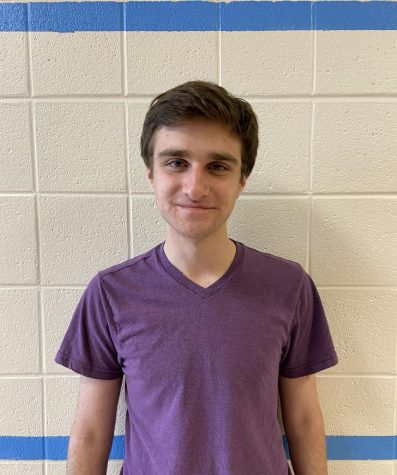
Why did you join The B&W?
I love writing and talking to new people with unique perspectives!
If you were a candle, what scent would you be?
Autumn Leaves



